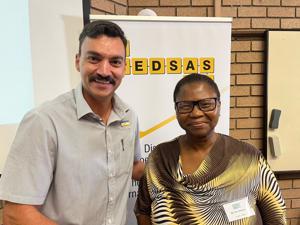12/03/2024 - Fedsas

Independent schools have experienced significant growth over the past decade. This sector is playing an increasingly significant role in the education sector in South Africa. The number of independent schools has nearly doubled to more than 2300 over the past ten years. There are nearly 740 000 learners and more than 45 000 educators in independent schools.
“Although these schools do not necessarily follow the national curriculum or have the same approach to teaching and learning, the basic principles of good governance remain the same,” says Dr Jaco Deacon, CEO of FEDSAS (the Federation of Governing Bodies of South African Schools).
Independent schools, including pre-primary schools, still function within the legislative framework for education in South Africa. The sector is quite diverse to serve the needs of communities and varies from listed companies to church schools or single owners of small schools.
“A while ago, FEDSAS made its expertise and extensive resources available to these schools. Since then, more and more independent schools have joined the organisation and our first mini summit for independent schools is taking place in Pretoria today (12 March 2024),” says Deacon.
FEDSAS’s manager for independent schools, Mr Hennie Combrink, says the aim of the summit is to provide members with a foundation that will enable them to build strong governance structures, or to adapt existing structures. “The programme covers topics such as legislation, continuing professional development for teachers, accreditation and financial sustainability, among others,” says Combrink.
Combrink says the summit also aims to provide members with a glimpse of the future so that they can see independent schools within the context of the political, economic, and cultural factors that play into education. Schools can also engage directly with the South African Council for Educators (SACE) and the quality control body, Umalusi.
“The world, and South Africa, is experiencing an era of disruption and change. To be sustainable, a school needs to adapt and innovate. A strong collective voice carries more weight. About ten percent of all schools in the country are independent schools. With all the challenges facing public schools, independent schools must stand together to be heard,” says Combrink.
Deacon says at the same time public schools can learn a lot from independent schools, especially since these schools deliver exceptional matric results year after year. “The aim of a school, independent or public, is to provide quality education to children. We must look at successful schools across the spectrum and identify that which sets apart these schools.”
PHOTO: Mr Hennie Combrink, FEDSAS’s manager for independent schools, and Ms Ella Mokgalane, CEO of SACE (South African Council for Educators), at FEDSAS’s first mini summit for independent schools.